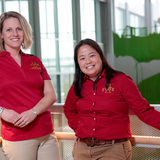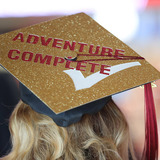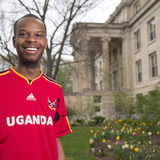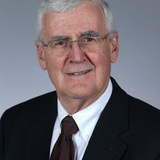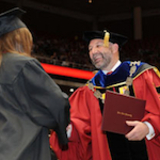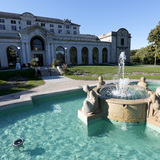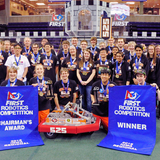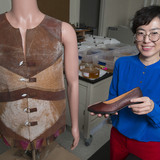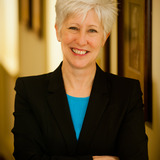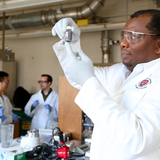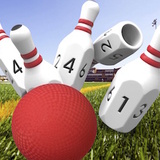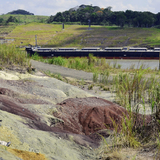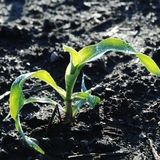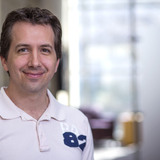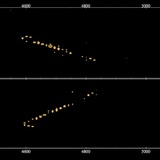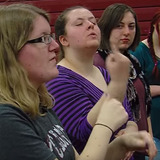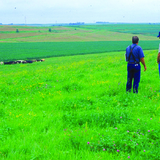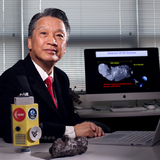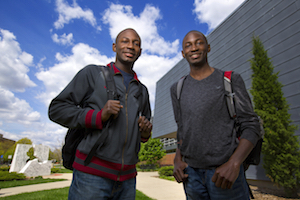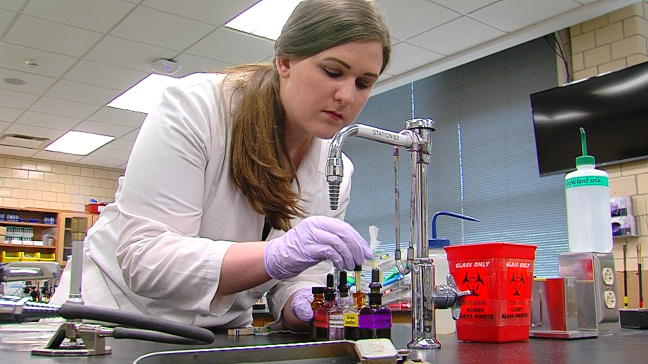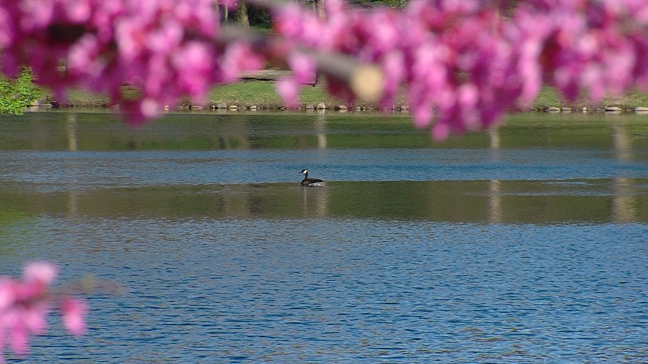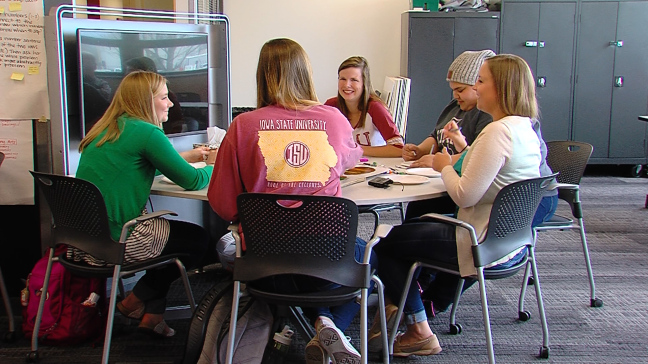News Archive
Thursday, May 5 2016
-
Time to change how news media cover mass shootings, says Iowa State prof
The amount of media attention focused on the shooter in a mass killing sends the wrong message, says an Iowa State University associate professor of psychology. Douglas Gentile, an expert on media effects, says news reports about the killer, the type and number of weapons used and rounds of ammunition glamorize the situation and set a “high score” for future mass shooters to beat.
-
Iowa State University researchers receive $1 million grant to study antimicrobial resistance in animal production
The grant from USDA's National Institute of Food and Agriculture will allow the interdisciplinary team of researchers to advance new technology to study antimicrobial resistance, which poses a growing threat to human and animal health.
-
Commencement for ISU's largest-ever graduating class is May 7 at Jack Trice Stadium
Iowa State will graduate an anticipated 4,601 students Saturday, May 7, an increase of more than 225 over last spring's largest-ever graduating class. Changes being implemented this semester to graduation weekend now include moving the undergraduate ceremony outside to Jack Trice Stadium, due in part to several years of record enrollments and corresponding record graduation classes. An anticipated 3,823 undergraduates will complete degrees from Iowa State this semester. The undergraduate ceremony will begin at 1:30 p.m.; stadium gates 3 (south) and 5 (northwest) open at 11:30 a.m. and all guests will sit in the west bleachers.
-
ISU graduating senior adapts urban roots to global agriculture
Malcolm Smith knows that awesome things happen when he steps outside his comfort zone. He chose to attend an agricultural sciences high school without knowing anything about ag. He left his hometown of 2.7 million diverse people to go to college in a town of 60,000 less diverse people. He went on a service learning internship in Uganda after his freshman year and took graduate-level courses at a German university his sophomore year. On Saturday, May 7, Smith graduates from Iowa State with a double major in global resource systems and public service and administration in agriculture.
-
New grant will help Iowa State University researchers to explore genetics of stress resistance in corn
A $2.1 million grant from the National Science Foundation will help ISU plant scientists build a better understanding of how corn plants deal with stress conditions such as heat waves. The research will focus on a delicate but vital process in plant cells called protein folding.
-
Iowa State spring undergraduate commencement moves to Jack Trice Stadium
Iowa State University President Steven Leath this morning (April 29) announced a new location for ISU’s spring undergraduate commencement ceremony. The May 7 celebration will be moved to Jack Trice Stadium, the university’s largest venue. University officials predict attendance at this spring’s undergraduate commencement ceremony will exceed capacity at the traditional Hilton Coliseum location. The move to Jack Trice Stadium does not affect individual college convocations and receptions, or the graduate (May 5, 7:30 p.m. at Hilton Coliseum) or veterinary medicine (May 7, noon at Stephens Auditorium) commencement ceremonies.
-
Iowa State's Hotel Memorial Union will help to serve growing student housing needs
Iowa State’s Memorial Union and Department of Residence will convert Hotel Memorial Union guest rooms to temporary student residence hall space beginning this fall. Repurposing the space will add up to 80 student beds on central campus. The MU housing will be operated like all other residence halls, with support from community advisers and other Department of Residence staff. Returning students who have a current 2016-17 residence contract have the option of selecting MU housing beginning April 28. Those interested can learn more at http://housing.iastate.edu/places/halls/mu.
-
Iowa school teams, individuals head to science and technology world championship
School students from across the state are heading to the FIRST Championship in St. Louis. They'll demonstrate what they've researched, built and learned in LEGO League and robotics programs. The whole idea is to inspire kids to be the "innovators, doers, and tinkerers of tomorrow."
-
Clothing made from tea byproduct could improve health of fashion industry
The fashion industry generates a lot of waste, which is why a team of Iowa State University researchers developed a new fiber that's 100 percent biodegradable. Researchers are testing the fiber – made from a green tea byproduct – to see if it's a viable alternative.
-
Jolly named Iowa State human sciences dean
Laura Dunn Jolly, professor of textiles, merchandising and interiors at the University of Georgia, Athens, has been appointed the next dean and Dean's Chair of the College of Human Sciences. She will join the university July 5. Jolly succeeds current Dean and University Professor Pam White, who is retiring after more than 40 years of service to Iowa State.
-
Iowa State engineers develop micro-sized, liquid-metal particles for heat-free soldering
Martin Thuo of Iowa State and the Ames Laboratory has led development of liquid-metal particles that can be used for heat-free soldering and other applications. He says Iowa State is the perfect place for the latest development of soldering technology. Back in 1996, a research team led by Iver Anderson of the Ames Laboratory and Iowa State patented lead-free solder. Thuo hopes his innovation is just as useful and has helped launch a startup company to develop and market the technology.
-
Industrial design and Courage League Sports team up to create assistive sports devices
Industrial design students at Iowa State University are learning to use a tool that will serve them well throughout their careers. It's not a soldering iron, needle nose pliers, glue gun or even a 3-D printer. It's empathy. This spring, 29 students are designing assistive sports equipment for a recreational facility that serves people with special needs. Courage League Sports in Urbandale has teamed up with Iowa State's industrial design department to create the equipment. And several students have gone above and beyond, volunteering to better understand the athletes' special needs.
-
Paleontologists find North America’s oldest monkey fossil along Panama Canal
Aaron Wood, director of Iowa State's Carl F. Vondra Geology Field Station, found a tiny, black-colored fossil tooth in 2012 when he was a postdoctoral research associate for the Florida Museum of Natural History. It turns out that find was North America's oldest monkey fossil. The journal Nature just published a paper describing the discovery.
-
ADVISORY: Iowa State University sources available to comment on spring planting
Spring planting is underway, and Iowa State University agricultural experts are available to comment on the trends and stories that will shape the upcoming growing season.
-
Brazil’s impeachment battle a sad day for democracy, Iowa State political scientist says
An Iowa State University political scientist says it is likely Brazilian President Dilma Rousseff will be impeached. Amy Erica Smith says the impeachment battle is politically motivated and reflects a fundamental misunderstanding by many lawmakers of how the country’s democratic institutions work.
-
‘Good cop’ parent not enough to buffer some harmful effects of ‘bad cop’ parent
New Iowa State University research shows harsh parenting may increase a child’s risk for poor physical health and obesity as they get older. And attempts by one parent to counterbalance the harsh behavior are not always effective in lessening that risk. The work is published in the journal Social Science and Medicine.
-
National Science Foundation grant to help Iowa State researchers develop genetic tools to improve performance of yams as global food staple
A new grant from the National Science Foundation will allow ISU researchers to study the genome of the yam, an important crop in global agriculture. The research team will utilize revolutionary genome-editing technology including the CRISPR/Cas9 system to develop an array of tools that could answer specific questions regarding yam gene function.
-
ISU economist working to better assess the costs of climate change
To effectively combat climate change, an Iowa State University economist says we need to better understand the costs. Ivan Rudik says estimates of the damage from greenhouse gas emissions are highly uncertain. Better assessment will help find the most effective ways to reduce emissions and address climate change.
-
Iowa State physicist analyzes first electron neutrino data from NOvA Experiment
Iowa State physicists are part of the huge NOvA Neutrino Experiment. The experiment just published two papers about the first experimental observations of muon neutrinos changing to electron neutrinos. The discovery could offer insight into fundamental neutrino properties such as mass and could help explain the dominance of matter in the universe.
-
More than learning a language, students experience what it means to be deaf
Language is about more than words. Whether they are written, spoken or signed, words are part of a language that cannot be separated from the culture. This philosophy is the foundation of the American Sign Language program at Iowa State University.
-
New Iowa State University research shows more cattle in Iowa may limit ag-related greenhouse gas emissions
Integrating more cattle production into Iowa’s agricultural portfolio may cut the state’s greenhouse gas emissions and lead to other environmental benefits, according to a new study co-authored by an Iowa State University researcher.
-
Change Agent: Bong Wie
Iowa State's Bong Wie came to campus nine years ago hoping to pursue a new and big idea in aerospace engineering. He picked asteroid defense -- aka saving the planet -- and founded the Asteroid Deflection Research Center. Now, the concepts developed by Wie and the center are being evaluated by a group of researchers from NASA and three national laboratories.

